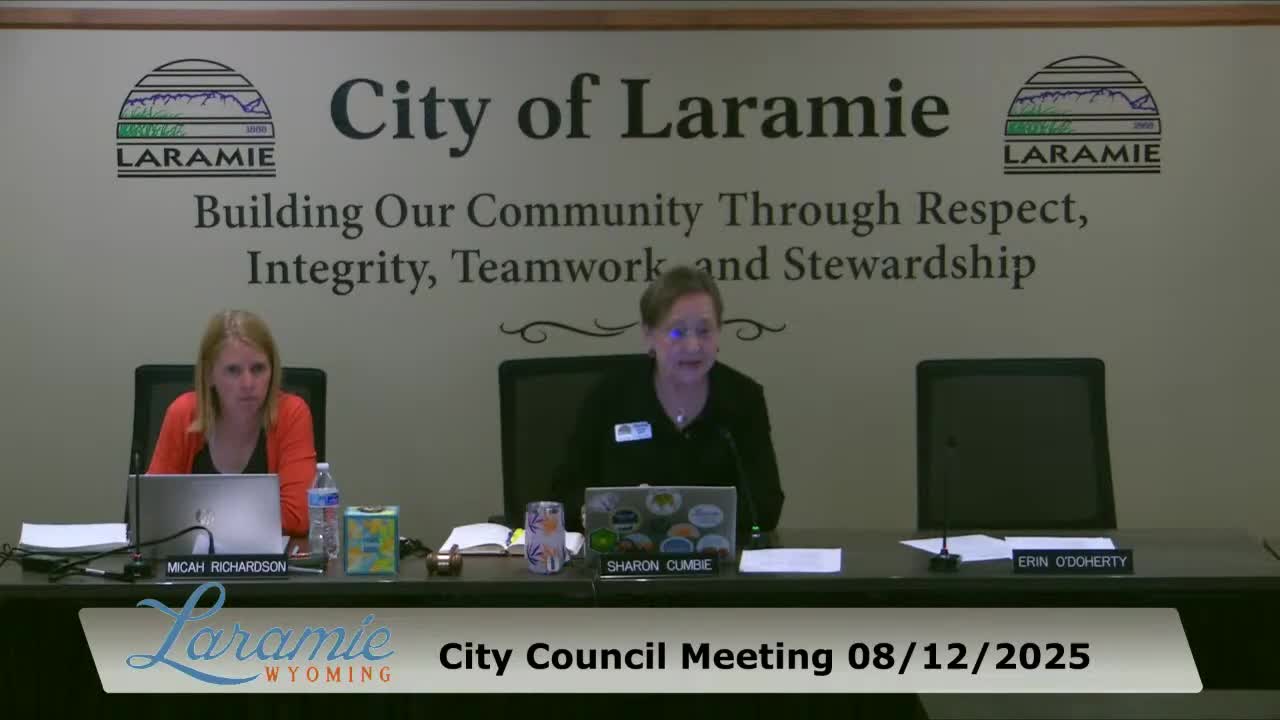Laramie shows off ‘checkbook’ phase of Open Finance tool; staff outlines transparency goals

Summary
City finance staff demonstrated the Phase 2 “checkbook” feature of Laramie’s Open Finance tool, reviewed transparency goals started after the city’s financial software modernization, and outlined outreach and distribution plans for condensed budget reports.
Director Wade presented an overview of the city’s financial transparency initiative and gave a demonstration of the Phase 2 ‘checkbook’ feature of Open Finance during the Laramie City Council work session on Aug. 12. The presentation covered the origins of the initiative following a February 2024 upgrade to the city’s financial software, the guiding principles for transparency, and plans to launch the checkbook feature to the public this fall.
Wade said the council’s 2024 goal to develop budget transparency and the city’s management objective to modernize finance systems drove the work. She said the city used the International City/County Management Association (ICMA) definition of transparency — “the principle of those affected by decisions to know about the results and the process that led to those decisions” — as a basis for the program. “Transparency leads to accountability, but they’re not 1 in the same,” Wade said.
The presentation summarized three 2025 priorities: publish a reader-friendly popular annual financial report (a “budget in brief”), provide more real-time public access to budget and expenditure data, and produce condensed budget publications to make budget information easier to use. Wade noted the city published its first community financial report in December 2024 and that the Government Finance Officers Association (GFOA) recognized that report with an award for popular annual financial reporting.
In the demonstration, Wade showed the checkbook interface that will allow users to filter and drill down by fund, department, division, account, and vendor and to download transaction detail. “Phase the checkbook is literally just a checkbook,” Wade said; she added the product is fully vetted and staff expects a mid‑fall launch once user guides and videos are finished. Wade said the data in the Open Finance product is drawn directly from the city’s financial software with minimal lag and no staff filtering, and that users can download transactions as a spreadsheet.
Council members asked about distribution and outreach to residents who do not use social media. Councilor Lockhart asked about creative ways to reach residents beyond online channels; Wade and other staff said options under consideration include condensed printed summaries, pick‑up copies at City Hall and the library, posters at local businesses, and targeted postcards announcing availability. Councilors also praised staff and urged continued outreach and training so residents can use the tools.
The demonstration was informational; no formal action or vote was taken. Staff said they will return with the official launch and supporting user guides and videos. For those needing help, Wade said staff will sit down with residents by appointment to walk through the tool.

